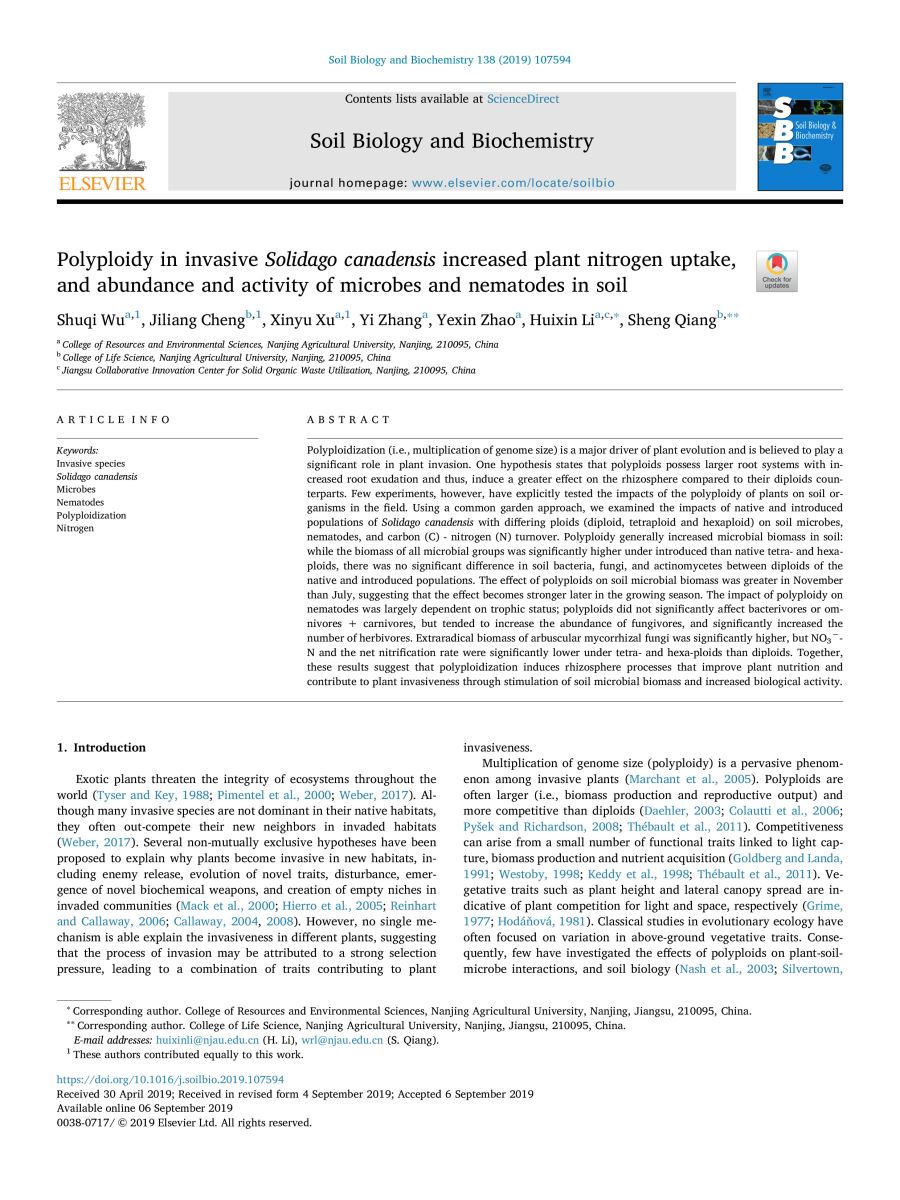Polyploidization (i.e., multiplication of genome size) is a major driver of plant evolution and is believed to play a signifificant role in plant invasion. One hypothesis states that polyploids possess larger root systems with increased root exudation and thus, induce a greater effffect on the rhizosphere compared to their diploids counterparts. Few experiments, however, have explicitly tested the impacts of the polyploidy of plants on soil organisms in the fifield. Using a common garden approach, we examined the impacts of native and introduced populations of Solidago canadensis with diffffering ploids (diploid, tetraploid and hexaploid) on soil microbes, nematodes, and carbon (C) - nitrogen (N) turnover. Polyploidy generally increased microbial biomass in soil: while the biomass of all microbial groups was signifificantly higher under introduced than native tetra- and hexa-ploids, there was no signifificant difffference in soil bacteria, fungi, and actinomycetes between diploids of the native and introduced populations. The effffect of polyploids on soil microbial biomass was greater in November than July, suggesting that the effffect becomes stronger later in the growing season. The impact of polyploidy on nematodes was largely dependent on trophic status; polyploids did not signifificantly affffect bacterivores or omnivores + carnivores, but tended to increase the abundance of fungivores, and signifificantly increased the number of herbivores. Extraradical biomass of arbuscular mycorrhizal fungi was signifificantly higher, but NO3−N and the net nitrifification rate were signifificantly lower under tetra- and hexa-ploids than diploids. Together, these results suggest that polyploidization induces rhizosphere processes that improve plant nutrition and contribute to plant invasiveness through stimulation of soil microbial biomass and increased biological activity.
